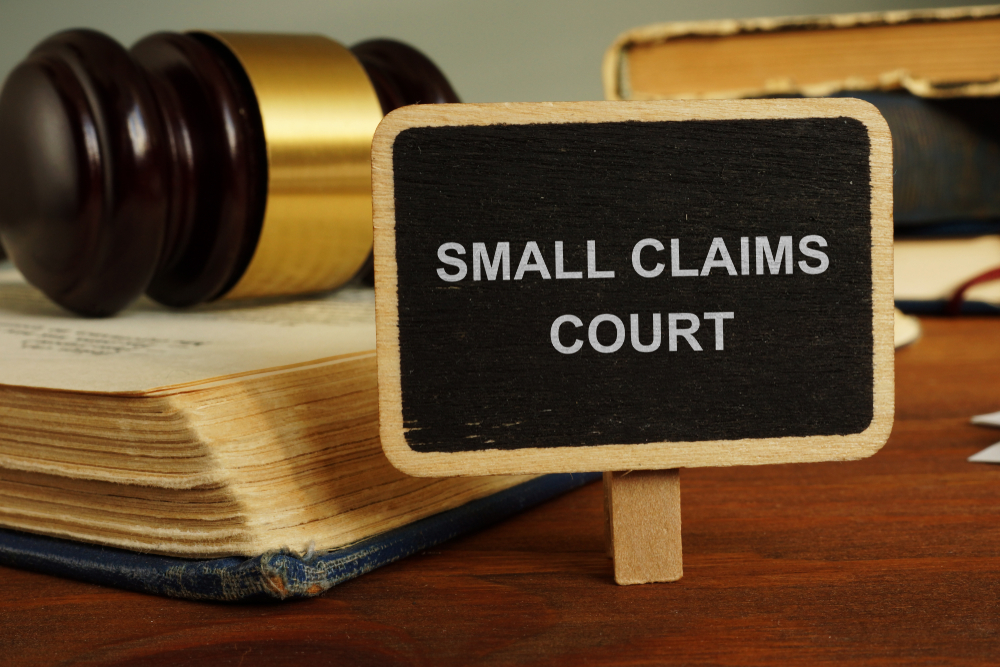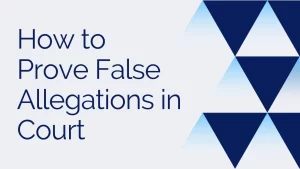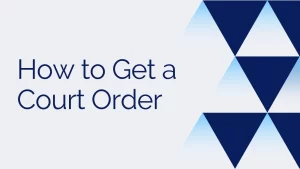what is small claims court
Understanding the Basics of Small Claims Court
In our day-to-day lives, legal issues can arise unexpectedly. One avenue that individuals and businesses can explore to resolve disputes quickly and efficiently is through small claims court. This informal legal process allows parties to settle their differences without the complexities and expenses associated with traditional litigation. In this article, we’ll delve into the world of small claims court, exploring its purpose, procedures, advantages, and potential drawbacks
Imagine a scenario where a landlord refuses to return a security deposit or a vendor fails to deliver goods as promised. These are just a few instances where small claims court comes into play. It’s a legal avenue designed to provide a swift resolution for disputes involving relatively small amounts of money.
What Is Small Claims Court?
Small claims court is a specialized legal forum that handles disputes of a relatively minor financial nature. It allows individuals, businesses, and even government entities to seek resolution for issues such as unpaid debts, property damage claims, contract disputes, and more. The primary goal of small claims court is to offer a simplified and accessible process for resolving these matters.
Jurisdiction and Limitations
Each jurisdiction sets its own rules and limits for what cases can be brought to small claims court. Generally, these limits are based on the maximum amount of money that can be claimed. This ensures that the court’s resources are focused on cases that truly benefit from the expedited process.
how does small claims court work
Filing a Claim
To initiate a case in small claims court, the plaintiff (the party bringing the claim) must file a complaint with the appropriate court. This complaint outlines the nature of the dispute, the parties involved, and the desired resolution. Filing fees are typically lower than those in regular court proceedings.
The Role of Evidence
While small claims court is less formal than traditional courtrooms, evidence still plays a crucial role. Both parties must present their evidence and arguments during the hearing to support their claims or defenses.
how to submit evidence in small claims court
- Understand the Rules: Before you start, familiarize yourself with the rules and procedures of your specific small claims court. These rules can vary by jurisdiction, so it’s crucial to know what’s required in your local court.
- Gather Your Evidence: Collect all the documents, photographs, records, or other items that support your case. This might include contracts, invoices, receipts, emails, text messages, photographs, videos, or any other relevant materials. Make sure your evidence directly relates to the dispute.
- Organize Your Evidence: Organize your evidence in a logical and chronological order. Label each piece of evidence clearly so that you can refer to it during the hearing without confusion.
- Make Copies: Make multiple copies of your evidence. You’ll need one copy for yourself, one for the defendant, and potentially one for the judge. Additionally, it’s wise to have extra copies in case you need to provide them to witnesses or refer to them during the hearing.
- Prepare a List of Exhibits: Create a list of exhibits that you plan to submit during the hearing. This list should include a brief description of each piece of evidence, such as “Exhibit A: Invoice dated [date].” This list helps you stay organized and makes it easier for the judge to follow your presentation.
- Notify the Other Party: In some jurisdictions, you may be required to share your evidence with the other party before the hearing. Check your local rules to see if this is necessary. Even if not required, it can be a good practice to provide a copy of your evidence to the other party in advance, as it can lead to smoother proceedings.
- Prepare Your Testimony: Be ready to explain how each piece of evidence supports your case. Prepare a clear and concise statement of your side of the story. Practice your testimony to ensure you can present it confidently and concisely.
- Presenting Evidence in Court: During the small claims court hearing, you will have the opportunity to present your evidence. Here’s how to do it:
- Wait for your turn to speak.
- Address the judge with respect.
- Begin by stating your name and your connection to the case (e.g., plaintiff).
- Refer to your list of exhibits and introduce each piece of evidence as you present it.
- Explain why each piece of evidence is relevant to your case.
- If you have witnesses, call them to testify and ask them questions that support your case.
- Be Respectful and Clear: Stay calm, respectful, and focused while presenting your evidence. Stick to the facts and avoid emotional outbursts or unnecessary details.
- Listen to the Other Party: Allow the other party to present their side and their evidence. Do not interrupt or argue with them during their presentation.
- Answer Questions: Be prepared to answer questions from the judge or the other party’s attorney.
- Follow Court Instructions: Follow any specific instructions or procedures given by the judge during the hearing.
- Submit Your Evidence: After presenting your evidence and making your case, ask the judge if they would like to keep your evidence or if they require any additional copies. In some cases, the judge may return your evidence to you.
- Wait for the Judge’s Decision: Once both parties have presented their cases, the judge will typically make a decision or provide a ruling at a later date.
Preparing for Your Case
Proper preparation is key to a successful outcome in small claims court. This involves gathering documents, photographs, and any other evidence that supports your case. It’s also important to practice articulating your arguments clearly and concisely.
The Hearing Process
The court will schedule a hearing where both parties present their cases before a judge. During the hearing, each party has the opportunity to present evidence, question witnesses, and provide their side of the story.
Mediation and Settlement
Before the hearing, parties may have the option to participate in mediation. A neutral third party helps facilitate a settlement between the parties. This can be a quicker and less adversarial way to reach a resolution.
What Type of Case Can I Resolve in Small Claims Court?
how to take someone to small claims court
If the very thought of filing a lawsuit in state court sends shivers down your spine, you’re not alone. Navigating the labyrinthine legal procedures without deep pockets for an attorney can feel like an insurmountable task. After all, the cost of hiring a lawyer might eclipse the actual value of the case itself.
Enter small claims courts – the panacea for these concerns. They offer a streamlined path for individuals with uncomplicated, low-value disputes to present their cases before a judge. No need for elaborate courtroom rituals or burdensome legal expenses.
The Realm of Simplicity and Savings
Yet, not all legal issues can find their home in small claims courts, and there’s a ceiling on the awards they can bestow – typically ranging from $2,500 in Kentucky to $25,000 in Tennessee, with most states falling somewhere between $3,000 and $15,000.
The Variety of Claims
Money matters tend to dominate the small claims landscape. The court becomes a beacon for those seeking recourse for unpaid debts. Proving the existence of an unpaid debt and securing a judgment is a relatively straightforward process. Once obtained, creditors can initiate collection actions.
But wait, there’s more. The repertoire extends to encompass various scenarios such as:
1. Repayment of Loans
Got a friend who borrowed money and vanished? Small claims court can be your ally in resolving such disputes.
2. Failed Repairs
Did the local mechanic botch the car repair? In small claims court, you can request a resolution.
3. Security Deposit Returns
Landlords and tenants often clash over security deposits. The court can mediate these disputes.
4. Damaged Clothing Woes
That expensive outfit ruined during alterations? Small claims court can address such grievances.
5. Personal Injury Claims
While many personal injury cases are settled between insurance companies, small claims court can still handle dog bite incidents and other minor personal injury matters.
6. Service Contract Breaches
Did the contractor fail to remodel your kitchen as promised? Small claims court can help you seek remedy.
7. Extended Options in Some States
Certain states broaden the scope even further. In these jurisdictions, cases involving:
- Evictions
- Requests for property return (known as “restitution” in legalese)
- Libel, slander, or defamation
- False arrest or police brutality
can also find a resolution in small claims court.
Money Matters in the Court of Law
When it comes to financial disputes, small claims court often operates under the same legal principles as other courts. Claims stemming from breach of contract, personal injury, intentional harm, or breach of warranty are admissible. For instance, if you purchase a high-end “all-weather tent” that leaks during its first stormy adventure, you have a valid basis for a small claims lawsuit citing breach of warranty.
Pros of Small Claims Court
Small claims court offers several benefits, including a simplified process, lower costs, and faster resolution. It also provides individuals with the opportunity to represent themselves, which can be empowering.
Cons of Small Claims Court
However, small claims court has its drawbacks. The monetary limits may exclude some cases, and decisions are binding, allowing limited room for appeal. Moreover, the informality of the process might not always guarantee a fair outcome.
Legal Representation
In small claims court, parties are often allowed to represent themselves without hiring an attorney. This can save on legal costs, but it’s important to understand the legal procedures and rules of evidence.
Enforcing Judgments
When a judgment is in your favor, the court will order the other party to pay. However, enforcing this judgment is your responsibility, and if the losing party refuses to comply, you may need to pursue further legal action.
Appealing a Decision
If you disagree with the court’s decision, you may have the option to appeal, but the grounds for appeal are usually limited. It’s essential to consult with a legal professional if you’re considering this step.
Tips for Success
To navigate small claims court successfully, gather strong evidence, be well-prepared, and present your case clearly. Understanding the procedures and limits of your jurisdiction is also crucial.
Conclusion
Small claims court serves as an accessible and efficient means of resolving minor disputes. It offers a straightforward process, allowing individuals and businesses to seek justice without the complexities of traditional litigation.
Frequently Asked Questions (FAQs)
- Can I hire an attorney for small claims court?While legal representation is generally not required, you can choose to hire an attorney if you prefer.
- What if the other party doesn’t follow the court’s decision?If the other party doesn’t comply with the judgment, you might need to take further legal action to enforce it.
- Is there a limit to how much I can claim in small claims court?Yes, each jurisdiction has its own monetary limit for cases that can be brought to small claims court.
- Can I appeal the court’s decision if I’m unhappy with it? Yes, you may be able to appeal, but grounds for appeal are typically limited.
- How long does the small claims court process usually take?The timeline can vary, but small claims court generally offers a faster resolution compared to traditional litigation.








